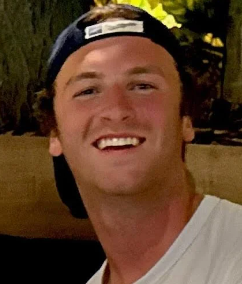
 August 31, 2016 Press Contacts Laura Green Communications Manager 202.314.1783 [email protected] Museum Press Kit BENJAMIN...
August 31, 2016 Press Contacts Laura Green Communications Manager 202.314.1783 [email protected] Museum Press Kit BENJAMIN...
August 31, 2016
BENJAMIN FERENCZ, LAST SURVIVING NUREMBERG PROSECUTOR, DONATES $1 MILLION TO U.S. HOLOCAUST MEMORIAL MUSEUM’S SIMON-SKJODT CENTER FOR THE PREVENTION OF GENOCIDE
Annually renewable gift made through Planethood Foundation to establish the Ben Ferencz International Justice Initiative
WASHINGTON – Benjamin Ferencz successfully prosecuted one of the world’s first convictions of crimes against humanity as a Chief Prosecutor for the United States during the trials of Nazi perpetrators at the Nuremberg Trials. Now, almost seven decades later, he secures his investment in the future of genocide prevention with the creation of the Ferencz International Justice Initiative at the U.S. Holocaust Memorial Museum. Through the Planethood Foundation Ferencz established to promote international law as an alternative to war and crimes against humanity, Ferencz will donate $1 million on an annually renewable basis to the Museum’s Simon-Skjodt Center for the Prevention of Genocide.
“I have witnessed holocausts and I cannot stop trying to deter future genocides. You cannot kill an entrenched ideology with a gun. Compassion, tolerance and compromise must be taught at all levels,” Ferencz said. “Crimes are committed by individuals; culpable leaders should be held to account civilly and criminally in national and international courts. The rule of law must be applied universally to protect humankind universally. ‘Law, not war’ is my slogan and ‘Never give up!’ is my mandate.”
Ferencz, 96, the last living Nuremberg prosecutor, spent his career building the architecture of international justice. At 24, Ferencz was tasked with setting up the United States’ first war crimes branch while the Allies were still fighting Germany. At 27, in his first criminal trial, Ferencz secured guilty verdicts against 22 high-ranking members of Hitler’s SS accused of murdering over a million innocent men, women and children. Oct. 1 will mark the 70th anniversary of the first verdicts in the trials in Nuremberg.
After the trials, Ferencz dedicated his legal expertise to securing restitution for Holocaust survivors, who as Ferencz described them, “had survived with only their tattoos and scarred memories.” He also worked to recover stolen Jewish properties, businesses, art and religious objects and return them to rightful owners.
Ferencz’s deep belief that the law can be used to deter war and crimes against humanity fueled his lifelong search for justice for atrocities committed after the Holocaust. His writings became the basis for the International Criminal Court, established in 1998 to prosecute cases of genocide, crimes against humanity, war crimes and the crime of aggression when national courts are unwilling or unable to prosecute the perpetrators. In recognition of his lifetime of achievements, the Museum honored Ferencz with its highest honor in 2015, the Elie Wiesel Award.
This gift is only the latest contribution Ferencz has made over decades to the Museum. He donated one of the largest collections of documents to the Museum’s archives, including diaries, documents from his war crimes work and the Einsatzgruppen Trial and family history.
“A witness to the aftermath of horrors of the Holocaust, Ben Ferencz made preventing and punishing the crime of genocide and mass atrocities the guiding principal of his career,” said Cameron Hudson, Director of the Museum’s Simon-Skjodt Center for the Prevention of Genocide. “He shares our conviction that genocide can be prevented but when it does occur, its perpetrators must be held accountable. His pioneering work and passion for international justice will continuously inform and inspire our efforts in genocide prevention.”
The Ben Ferencz International Justice Initiative seeks to strengthen the rule of law for atrocity prevention and response, promote justice and accountability in countries where genocidal crimes have been committed, and foster research and policy aimed at using international justice to deter, prevent and respond to mass atrocities.
The United States Holocaust Memorial Museum’s Simon-Skjodt Center for the Prevention of Genocide is dedicated to ensuring that governments have the structures and tools to prevent genocide and to catalyze an international response when it occurs. Its goal is to make the prevention of genocide a core priority for leaders around the world through a multipronged program of research, education, and public outreach. It works to equip decision makers, in the United States and abroad, with the knowledge, tools, and institutional support required to prevent — or if necessary, halt — genocide and related crimes against humanity.
This gift from the Planethood Foundation is part of the Museum’s $540 million campaign “Never Again: What You Do Matters,” that will enable the Museum to make critical investments to keep Holocaust memory alive as a relevant, transformative force in the 21st century. The campaign will create a stronger endowment, increased annual fund and build a new collections and conservation center. For more information, visit www.ushmm.org/campaign.
A living memorial to the Holocaust, the United States Holocaust Memorial Museum inspires citizens and leaders worldwide to confront hatred, prevent genocide and promote human dignity. Its far-reaching educational programs and global impact are made possible by generous donors. For more information, visit www.ushmm.org.
###
Tags:
Content from United States Holocaust Memorial Museum
Originally published at https://www.ushmm.org/information/press/press-releases/benjamin-ferencz-donates-1-million-to-museums-center-for-the-prevention-of
originally published at HUMAN RIGHTS - USA DAILY NEWS 24

